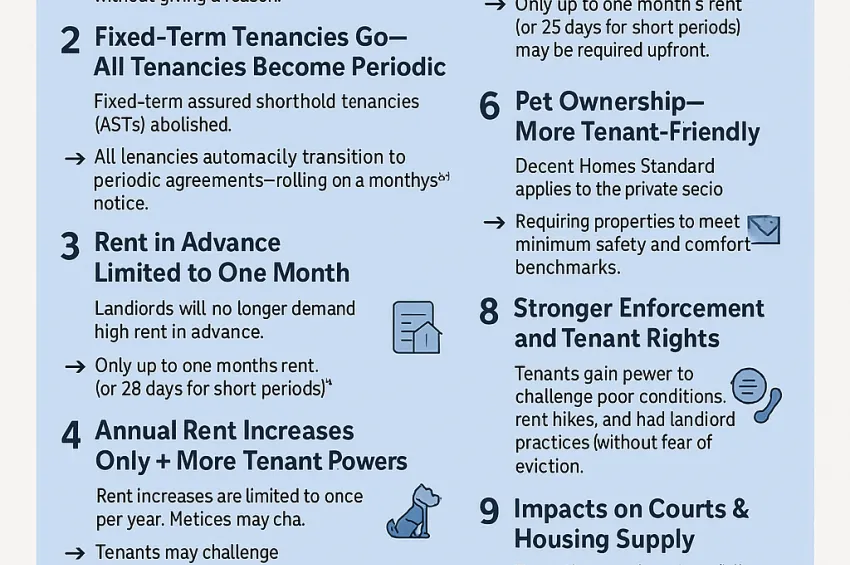Understanding the Renters Rights Bill and Rent Increases

The Significance of the Renters Rights Bill
With the ongoing housing crisis impacting millions, the Renters Rights Bill has emerged as a critical piece of legislation aimed at providing robust protections for tenants across the United Kingdom. Rising rent costs have long been a source of concern for renters, prompting calls for government action. This bill seeks to address these issues by establishing clearer regulations regarding rent increases.
Key Provisions of the Renters Rights Bill
The proposed Renters Rights Bill includes several significant measures designed to enhance tenant security. One of the central components is the limitation on rental increases, which will now be capped at an inflation-based rate, providing renters with a predictable framework for potential hikes. This means that any annual rent increase will be aligned with the Consumer Price Index (CPI), protecting tenants from exorbitant price surges.
In addition to regulating rent increases, the bill also stipulates that landlords must provide tenants with a minimum notice period—six months—before any proposed hike takes effect. This amendment ensures that renters have adequate time to plan their finances accordingly and seek alternative housing if necessary.
Recent Developments
In the last few weeks, the UK Parliament has been reviewing the bill in detail, with various stakeholder groups contributing their insights. Housing advocates have applauded the bill as a much-needed safeguard for vulnerable renters, particularly in urban areas where housing demand is high. However, some landlords have voiced concerns about the potential negative impact on their businesses, arguing that such regulations could discourage investment in rental properties.
Impact on Renters
If passed, the Renters Rights Bill could transform the rental landscape for millions. Advocates believe that the legislation will empower tenants, granting them greater control over their living situations and decreasing the stress associated with rising rents. Furthermore, the emphasis on clear regulations could foster a more stable rental market, benefitting both tenants and responsible landlords.
Conclusion: Looking Ahead
The debate surrounding the Renters Rights Bill comes at a vital time as the cost of living continues to rise. As the country watches closely, the outcome of this legislation will have significant implications for tenants’ futures. The bill is projected to be discussed further in the coming months, with hopes that it can be enacted by the end of the year. For renters, this represents a pivotal moment to advocate for their rights and experience a rental market that promotes fairness and stability.








